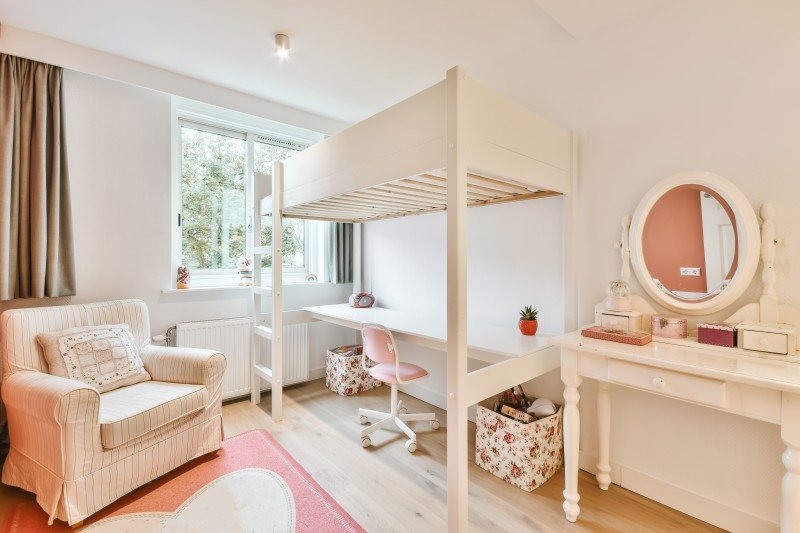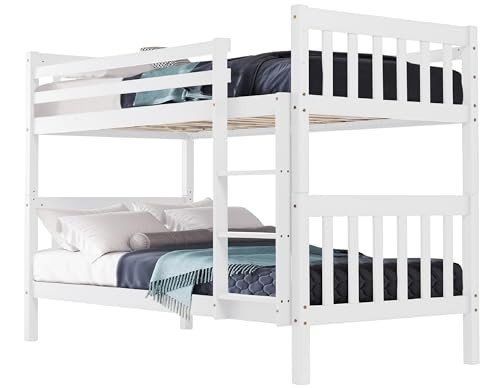
Bunk Bed For Teens
Add a review FollowOverview
-
Founded Date February 22, 1907
-
Sectors Aged Care
-
Posted Jobs 0
-
Viewed 305
Company Description
You’ll Never Be Able To Figure Out This Bunk Beds Sale’s Tricks

Bunk Beds Sale: A Comprehensive Guide to Choosing the Right Bunk Bed for Your Home
Bunk beds have actually long been a staple in children’s bedrooms, offering a combination of space-saving efficiency and fun. Whether accommodating brother or sisters, buddies on pajama parties, or just making the most of a playroom, bunk beds have ended up being an important element in contemporary family homes. As sales on bunk beds rise, it becomes increasingly important for consumers to make informed choices when purchasing one. This post will cover the fundamentals of acquiring a bunk bed, from types to safety features, in addition to tips for maintaining the stability of your investment.
Kinds Of Bunk Beds
When thinking about a bunk bed sale, it’s crucial to comprehend the different designs offered on the market. Below are the most common types:

-
Traditional Bunk Beds: These consist of two beds stacked one above the other, sharing a single frame. They are often the most cost-effective alternative.
-
L-Shaped Bunk Beds: This design features one bed placed vertically and another horizontally. This plan develops extra space below the upper bed, which can be utilized for storage or a backyard.
-
Lofted Beds: Similar to standard bunk beds however with no lower bed. Rather, the space below can be utilized for a desk, play location, or extra storage.
-
Triple Bunk Beds: For households with a larger number of children or frequent sleepovers, triple bunk beds offer 3 sleeping areas in a space-efficient style.
-
Futon Bunk Beds: These styles combine bunk beds and futon couches. The bottom section transforms into a different seating location, improving functionality.
-
Convertible Bunk Beds: These beds can be separated into two individual beds, making them flexible as kids’s requirements alter with time.
Table 1: Comparison of Bunk Bed Types
| Type | Description | Space Efficiency | Extra Features |
|---|---|---|---|
| Standard Bunk Bed | 2 beds stacked vertically | High | Easiest design |
| L-Shaped Bunk Bed | One vertical and one horizontal bed | Moderate | Play or storage space |
| Lofted Bed | Elevated bed with open space below | High | Work/play location |
| Triple Bunk Bed | 3 stacked beds | Very High | Accommodates more users |
| Futon Bunk Bed | Bunk bed with a convertible futon | High | Multi-functional |
| Convertible bunk beds Sale Bed | Can be divided into two separate beds | Moderate | Versatility & & longevity |
Security Features to Consider
Security is vital when investing in a bunk bed. Below are key safety functions to look for:
-
Guardrails: Adequate guardrails ought to be present on both sides of the upper bunk to avoid falls. They should be at least 5 inches greater than the bed mattress.
-
Ladder Design: Look for durable, broad ladders with slip-resistant rungs. Guarantee that the angle is not too steep for easy access.
-
Stability: Ensure the bed is built with strong products, such as solid wood or sturdy metal. The bed needs to not wobble when in use.
-
Weight Limit: Check the weight capability of the bunk bed to ensure it can accommodate the intended users safely.
-
Material Safety: If possible, choose beds made from non-toxic materials or those satisfying security requirements for children’s furnishings.
Table 2: Essential Safety Features
| Feature | Description | Value |
|---|---|---|
| Guardrails | Sides of upper bed to avoid falls | Necessary for kid safety |
| Ladder Design | Solid, slip-resistant rungs | Help safe and simple access |
| Stability | Construct quality to prevent wobbling | Ensures safety and longevity |
| Weight Limit | Maximum weight capacity | Avoids mishaps |
| Material Safety | Non-toxic, safe products | Protects kids’s health |
Upkeep Tips for Bunk Beds
To extend the life of your bunk bed and ensure ongoing safety, consider the following maintenance ideas:
-
Regular Inspections: Periodically inspect the structure for loose screws, bolts, or any indications of wear. Tighten up fasteners as necessary.
-
Tidy Periodically: Dust and clean the surface areas routinely. Use proper cleaners that will not harm the finish.
-
Examine Weight Limits: Be conscious of weight limits, especially with older children or adults who may want to utilize the upper bunk.
-
Prevent Climbing on Guardrails: Educate children not to utilize guardrails for climbing up or playing to lower the risk of mishaps.
Frequently Asked Questions (FAQs)
Q1: What is the age limitation for kids to securely use bunk beds?A: While it differs by the maker, many advise that kids under six ought to not sleep in the upper bunk due to safety issues.
Q2: How can parents dissuade hazardous climbing?A: Setting clear guidelines about bunk bed usage and monitoring kids can help. Additionally, using a bed tent can prevent climbing while creating an enjoyable sleep environment.
Q3: What should I consider when embellishing a space with bunk beds?A: Ensure there is enough space around the bunk bed for safe movement, and use the decor to produce customized areas for each kid.
Q4: Is a lofted bed appropriate for older children?A: Yes, lofted beds can be appropriate for older children as long as they meet safety requirements and the kid is accountable enough to utilize them securely.
Bunk beds serve a functional function while adding a component of fun to a child’s bedroom. As sales of bunk beds continue to increase, careful factor to consider of types, safety features, and upkeep practices is necessary for parents and caretakers. By comprehending these essential factors, households can find the perfect bunk bed for their home, guaranteeing both usefulness and security for several years to come. Whether it’s for brother or sisters sharing a room or producing a comfortable sleepover space, a well-chosen bunk bed can provide delight and functionality, making it a worthwhile investment.


